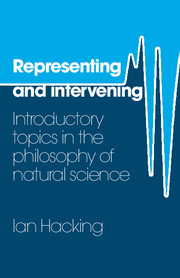Summary
You ask me, which of the philosophers' traits are idiosyncrasies?
For example: their lack of historical sense, their hatred of becoming, their Egypticism.
They think that they show their respect for a subject when they dehistoricize it – when they turn it into a mummy.
(F. Nietzsche, The Twilight of the Idols, ‘Reason in Philosophy’, Chapter 1)Philosophers long made a mummy of science. When they finally unwrapped the cadaver and saw the remnants of an historical process of becoming and discovering, they created for themselves a crisis of rationality. That happened around 1960.
It was a crisis because it upset our old tradition of thinking that scientific knowledge is the crowning achievement of human reason. Sceptics have always challenged the complacent panorama of cumulative and accumulating human knowledge, but now they took ammunition from the details of history. After looking at many of the sordid incidents in past scientific research, some philosophers began to worry whether reason has much of a role in intellectual confrontation. Is it reason that settles which theory is getting at the truth, or what research to pursue? It became less than clear that reason ought to determine such decisions. A few people, perhaps those who already held that morality is culture-bound and relative, suggested that ‘scientific truth’ is a social product with no claim to absolute validity or even relevance.
Ever since this crisis of confidence, rationality has been one of the two issues to obsess philosophers of science.
- Type
- Chapter
- Information
- Representing and InterveningIntroductory Topics in the Philosophy of Natural Science, pp. 1 - 18Publisher: Cambridge University PressPrint publication year: 1983
- 18
- Cited by



